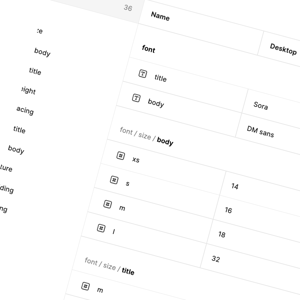
Customers expect seamless, convenient virtual experiences with content that is relevant and timely to their individual needs. Internal teams need a user friendly content management experience that offers the ability to make swift changes and monitor metrics.
Modern Content Management System (CMS) platforms offer a number of benefits - from enhancing your website’s SEO capabilities to allowing for easier content scheduling. There are now several well-respected platforms available with sophisticated toolkits for everything from website personalisation to reusable components. Choosing the right option for your business, though, can be far from straightforward. Umbraco, WordPress, Sitecore - they’re all vying for your attention.
So what selection criteria should you consider when choosing a new CMS platform - and how can Shout Digital guide you through the replatforming process?
Matching your platform to your business strategy
Organisations who take a mid-to-long term view of their digital strategy have the opportunity to identify both current and future requirements of their website platform. If you’re a smaller organisation, like professional services, or your website otherwise operates as an online brochure, a simple approach to content management systems may suit. But could you benefit from a logged-in area for your customers to self-serve or see project updates? Can your team easily update your blog? Is your site secure and up-to-date?
If your strategy includes the introduction of significantly different products, new routes to market or the addition of new territories - or you operate a multi-brand model - a website platform that allows you to create and oversee multiple websites from a single admin can be hugely helpful in keeping hosting costs, training overhead and general admin time down. We typically recommend Umbraco to clients with emergent enterprise-level needs - the platform combines a template-driven starting point for a quick initial delivery with the ability to add more sophisticated features and integrations in future phases as your business changes.
Digital Experience Platforms (DXP) such as Sitecore, however, can be more appropriate for companies with high-value ecommerce set-ups or sophisticated high-volume content strategies. These platforms deliver increased performance power and CMS features with advanced marketing tools. Committing to an enterprise level platform, however, requires a team which can make the most of it.
How do your resources line up?
Identifying the level of resources you can invest in site maintenance is vital when choosing a new CMS. Maintaining several sites across multiple platforms can overwhelm your IT department - and more servers means more security upgrades and more logins to keep track of, all of which can quickly hurt productivity for your teams. A managed service agreement with a digital partner can quickly alleviate this headache.
It doesn’t matter if your team is made up of one, five or fifty people - usability is essential. Your team is more likely to keep your website updated if the process is smooth and satisfying. Some content management systems offer extensive customisation of content and styling, which can be an advantage for some. This flexibility, however, can also cause problems. Diligent team members may sink time trying to achieve pixel-perfect consistency between pages, while others may simply lack the skills to do so. You shouldn’t need to choose between efficient updates and consistent brand experience - in these cases a CMS that allows tightly defined reusable components can be invaluable.
Keeping things secure.
Today’s standards of security best practice go beyond simply not sharing admin passwords (but if you still do this, please go and make individual CMS users for your team now - we’ll wait). DevSecOps is now a discipline in its own right, focusing on safeguarding security at every stage of the development process - from initial design through integration, testing, deployment and software delivery.
Selecting an appropriate CMS or DXP with appropriate sophistication to match your security needs is key. A basic content site, for example, will have a different standard to one which collects financial information, processes transactions or handles sensitive customer data. Keeping your chosen CMS up-to-date will also ensure you’re benefiting from the latest security patches.
WordPress is often praised for its lack of perceived entry barriers and abundance of site themes - but its overreliance on third-party plugins can be problematic. Plugins are not always maintained by their creators meaning they can quickly be rendered obsolete, leaving your website - and your users - exposed. And as it is the world’s biggest CMS (30 million websites and counting), unscrupulous agents who seek to exploit Wordpress vulnerabilities can see huge return on their efforts.
Do you actually need to replatform?
When it's time to tackle a website refresh, the instinct is often to ‘rip and replace’ the entire system - back end and front end alike - and start again. Sometimes this is absolutely necessary, particularly if a web estate is old or unsuitable. But this isn’t always the case.
If your current CMS is relatively recent, and your team knows and likes the editing experience, it could be more prudent to simply replace the front end to give you the refreshed user experience you need while preserving the back end experience your team loves. This also saves you from the painful ‘in between’ where you have to tell stakeholders that the thing they care about is ‘coming with the new site.
We often take an ‘adopt and update’ approach. As part of our adoption service, we help clients update their front end, auditing their security, usability and future-suitability of their platform.
All of the aforementioned considerations can make planning a replatform appear daunting. The stark reality, however, is that if your current system is creaking now, the situation is unlikely to improve without intervention. And this is where Shout Digital can painlessly guide you through the process.
Looking for support with Product Selection?
Our product selection service is based on working with clients to map their current and future requirements of a CMS, DXP or other digital solution, against the features of the available products, in order to make an informed choice.
This process starts with a Discovery phase, during which we interview or hold workshops with existing users and stakeholders, and analyse any user data you already hold. We’ll then map that against the current and future strategy, either using one you already have documented or working with you to refine and articulate your digital vision. This process delivers a prioritised list of features and functionality for now and for the future of your digital project.
Following this, we map the identified features against available products in the space and recommend the appropriate path forward. The ‘buy, build, extend and blend’ approach is often the most effective way to get the best return on your team’s objectives whilst maximising your budget.
Product Selection in Practice
A leading university previously approached us to consult on replatforming its website. Our recommendation, after in-depth research into the existing site and a methodical product selection process, was to avoid WordPress despite being popular in the sector. We recommended Sitecore as its ability to support personalised experience for disparate user groups and provide a fast, performant and secure platform was ideal for serving the University’s current and future needs.
Delivering a high-quality user experience (UX) is what separates the thriving from the floundering. Parkdean Resorts wanted to undergo a major digital transformation whilst delivering exceptional customer experience (CX). Rather than replatform, their existing Sitecore estate was migrated to the latest version and moved from on-premise, to modern scaleable cloud hosting. Sitecore’s powerful content management tools and excellent integration capability meant it was still the correct choice for Parkdean’s extensive digital estate.
But not every company requires (or is able to make the most of) Sitecore’s complex feature stack. Novuna needed assistance optimising its digital estate - featuring nine individual websites. Having multiple sites to maintain had the potential to become unmanageable, particularly in terms of time required for upkeep. By using the Umbraco CMS, and creating components that can be shared across multiple sites, we helped the team ensure they could easily create new content but maintain tight control of the brand experience.
The clock is ticking…
Your audience’s expectations are constantly shifting. Flexibility is key to continue catering to them and that means investing in your website. A strong digital presence can drive business for years to come - and selecting the optimal CMS platform can preserve the experience of your employees and consumers alike.
If you are struggling to decide which Content Management System would be a good fit for your business - chat to our team about product selection.
Shout Digital is an Umbraco Gold Partner and Sitecore Silver partner. We consider ourselves a platform-agnostic business, focussing on the best toolkit to deliver exceptional digital experiences - both for brands and consumers.
Struggling with your CMS choice?
Book a call with our team to discuss how we can help.























